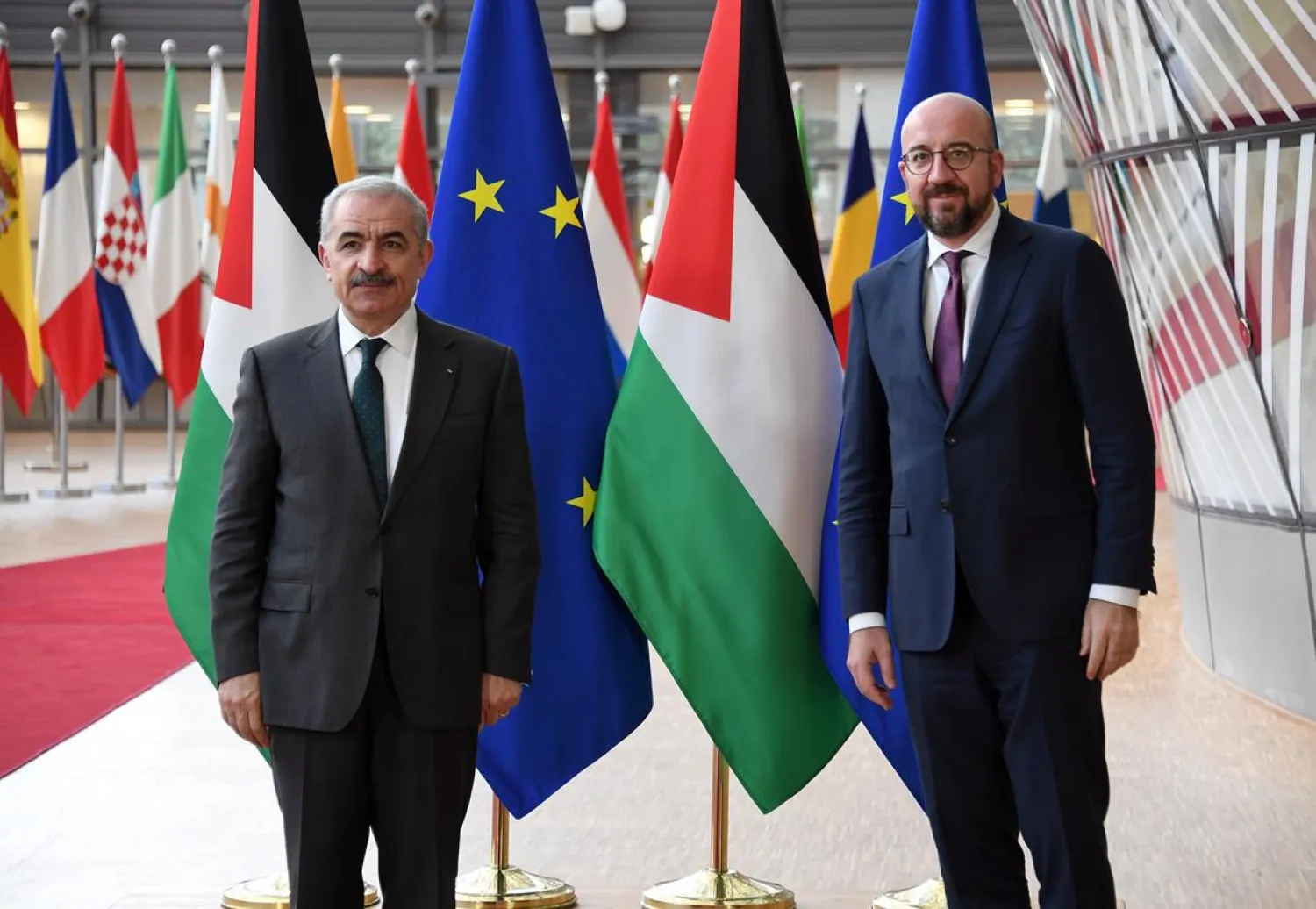Palestinian Prime Minister Mohammad Shtayyeh on Wednesday urged European Union countries to salvage the two-state solution, increase their support for the Palestinians and to recognize the State of Palestine.
During a meeting in the Belgian capital, Brussels, with Arab ambassadors to the EU, Shtayyeh discussed the difficult economic and financial situation in the Palestinian territories, due to the Israeli measures imposed on the Palestinian people and the lack of foreign funding, in addition to the illegal Israeli deductions from the tax revenue it collects on behalf of the Palestinian Authority, to offset stipends paid to militants and their families.
Shtayyeh said President Mahmoud Abbas insists to hold elections across the Palestinian Territories, stressing that the voting is considered a Palestinian issue, which the Authority is keen to hold.
“This is not only an American or European demand,” Shtayyeh said, calling on the international community, particularly the US and Europe to put real pressure on Tel Aviv to allow the elections to be held in Jerusalem, including allowing Jerusalemites to cast their votes, and run as electoral candidates.
Also on Wednesday, Shtayyeh held a meeting with the President of the European Council, Charles Michel.
The PM renewed his call on the EU to hold European settlers who live in settlements accountable, in accordance with the principles of the EU, which considers settlements illegal and contrary to international law.









